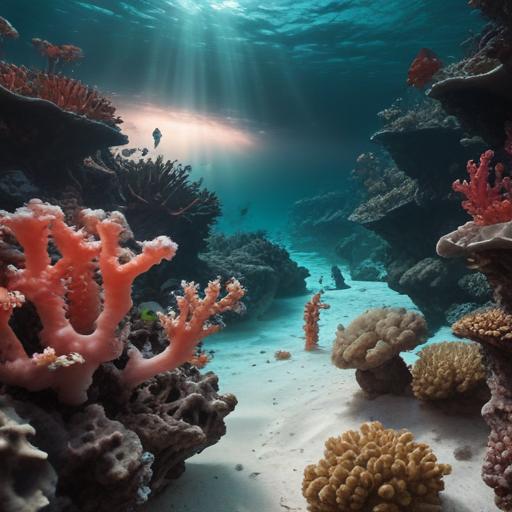The Great Barrier Reef has recorded its most significant annual coral decline in nearly four decades, according to a recent report from the Australian Institute of Marine Science (AIMS). Both the northern and southern sections of the reef have endured severe coral bleaching, marking an alarming low point for this vital ecosystem. The report attributes the widespread deterioration primarily to climate change-induced heat stress, while also noting the impacts of tropical cyclones and outbreaks of the crown-of-thorns starfish, known for their appetite for coral.
AIMS conducted health surveys of 124 coral reefs from August 2024 to May 2025, continuing their monitoring efforts that date back to 1986. The Great Barrier Reef, one of the planet’s largest living structures spanning 2,300 kilometers, is home to extraordinary biodiversity. Persistent bleaching events have led to extensive areas of coral turning white, indicating stress and damage.
This year has seen unprecedented levels of heat stress, resulting in the most extensive and severe bleaching documented to date. Coral typically requires time to recover from heat stress, ideally taking several years without recurring disturbances. The report highlights that coral species such as Acropora, known for their rapid growth, are the most affected, emphasizing the urgent need for conservation efforts.
Encouragingly, there have been positive developments in the fight against crown-of-thorns starfish. A targeted culling program by the Australian government has successfully neutralized over 50,000 starfish, which are responsible for significant coral predation. The AIMS report pointed out that, due to these control activities, no severe outbreaks of these starfish were noted in the Central Great Barrier Reef in 2025.
While the situation remains dire due to ongoing environmental threats, experts stress the importance of continued efforts to protect the reef. Dr. Mike Emslie, AIMS research lead, underscores the inherent resilience of the Great Barrier Reef, emphasizing its profound beauty and ecological significance. With continued conservation initiatives, there is hope that the reef can recover and thrive once again.
